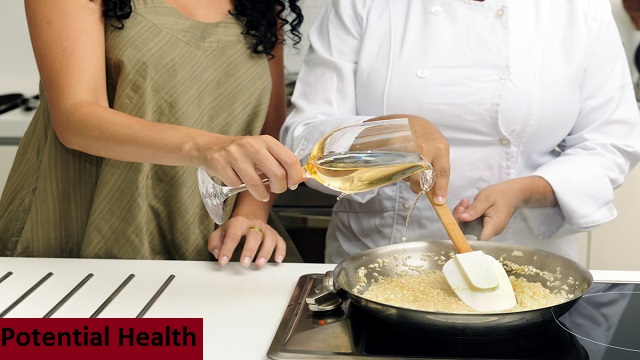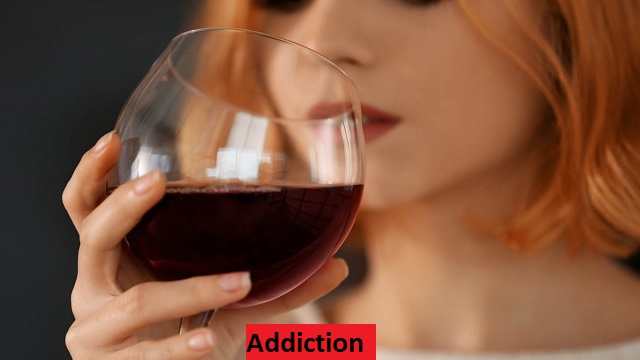
The advantages of having a glass of wine each night.
The advantages of wine every night have only recently occurred to me. Please be patient with me; I’m not an alcoholic. I recently spent the past 10 days in Spain, and one of the most important things I discovered about this nation’s culture was how much they also adore wine.
They are also huge fans of food, especially carbohydrates. As I continued to research this during my 20-hour flight back to the United States, I discovered some pretty compelling arguments for why you might want to start drinking a glass of wine every night. I recognize your excitement. Let’s begin immediately!
In conclusion, we advise using moderation in all good things. The body and the mind can suffer from too much of a good thing (or a bad thing). In this situation, switching to red wine may be a better option if you already regularly consume alcohol. You may experience improved health benefits in the aforementioned areas, such as your gut, bones, and cardiovascular function. No matter where it comes from, alcohol still has drawbacks and health implications that can include increased weight gain, restless sleep, and depressive mental health.
Wine Could Be Beneficial for Gut Health.
According to some research, moderate consumption of red wine can help the intestinal microbiome, which can lead to better overall health effects like increased cholesterol metabolism and decreased adiposity. The polyphenols in red wine are the cause. Particularly reserveatrol increases insulin-mediated glucose uptake while inhibiting lipogenesis.
According to studies, wine drinkers have a higher microbiota, which makes Barnesiella another polyphenol that supports immune system health. Despite this, more randomized studies are required to determine whether moderate consumption of red wine has a positive, conclusive impact on the gut microbiome. Your overall BMI may also play a role in your physiological response to moderate consumption of red wine.
Wine Could Be Beneficial for Cardiovascular Health.
Experimental studies and meta-analyses have shown a link between red wine consumption and a lower risk of coronary heart disease (CHD). the presence of polyphenolic substances like resveratrol, catechin, epicatechin, quercetin, and anthocyanin. Due to its antioxidant properties, resveratrol is thought to be the wine compound that prevents CHD the best.
Changes in lipid profiles, a decrease in insulin resistance, and a reduction in low-density lipoprotein cholesterol’s (LDL-C) oxidative stress would be the mechanisms underlying its putative cardioprotective effects. The research may actually be in favor of red wine for heart health in moderation consumption by lowering risk factors that cause cardiovascular disease while also having a favorable effect on lowering insulin resistance and oxidative stress.

Wine may make bones more dense.
If you’re looking to maintain the health of your bones, wine might be in the cards for you. An Australian study found that red wine can promote stronger bone health in people between the ages of 50 and 80. Osteoporosis in older adults is more likely to develop as they age, particularly in women. This is due to age-related bone loss.
Although studies on the effects of moderate alcohol consumption have been conflicting, it is true that excessive drinking can impair physical function and increase the risk of falling, which can increase the likelihood of getting hurt. During the two-year study, more than 900 men and women who drank beer, spirits, and red wine were monitored.
The results were difficult to interpret, but some speculate that phytochemicals, like the polyphenols in grape skin, may support healthy bones and thus support wine consumption. However, we wouldn’t exactly suggest that you down a glass of wine for the health of your bones. If you want to focus on your resistance training, think about leaving that.
The cognitive benefits of wine may be increased.
As we get older and our bodies oxidize, our ability to think clearly decreases. But in a more recent study, 1,226 men and women aged 75 to 87 (a group with high rates of cognitive decline) were followed in Japan in 2016 and 2017.
When cognitive function was tested using the Montreal Cognitive Assessments (MoCAs), a test used to evaluate mild cognitive impairment and Alzheimer’s disease, it was discovered that those who reported drinking alcohol one to six days per week performed better.
They found that the drinking group performed significantly better on tests of cognitive function than those who abstained from alcohol, with an average score of 23.06. Even though this study focused more on consumption than frequency, the researchers do recommend that consumption be kept within the moderate range of 14g for women and 28g for men.
Wing Could Lower the Risk of Type 2 Diabetes.
In a study with nearly 312,000 participants and an 11-year follow-up, it was discovered that those who consumed no more than 14g (for women) and 28g (for men) of sugar per day at mealtimes were at a lower risk of developing type 2 diabetes.
Keep in mind that the benefits came from consuming wine or other alcoholic beverages with meals rather than on their own without food. So, if you don’t currently drink wine or any other alcoholic beverages and want to reduce your risk of developing type 2 diabetes, you probably shouldn’t start. If you already consume alcohol, switching to wine and combining it with food in moderation may help reduce your risk of developing type 2 diabetes.
The Drawbacks of Regular Wine Consumption.
I am aware that bad news is on the way. Oh, womp. Unfortunately, there isn’t much solid evidence to back up the claim that drinking wine every night is good for your health. A practice of drinking wine every night is one that public health professionals find difficult to both support and oppose. The best course of action is probably to continue abstaining from alcohol.
If you do drink, switching to antioxidant-rich, low-sugar red wine rather than calorie-dense beers or excessive amounts of hard liquor may be a healthier option. Let’s look at the disadvantages of drinking wine every night after outlining some of the potential health benefits.
Poor sleep might be a side effect of drinking.
Unfortunately, having a glass of red wine or even a small amount of alcohol before bed can prevent your body from naturally falling asleep. Alcohol causes this because it depresses the central nervous system (CNS).
While alcohol can relax you and make you feel sleepy in some ways, it acts more like a sedative when it comes to sleep. As a result, it can cause light sleep, insomnia, and even worsen the signs of sleep apnea. However, the actual impact of alcohol on sleep depends on the individual and their health, despite studies on all types of alcohol showing this.
With wine consumption, the risk of depression could increase.
Regular drinking can result in habits like increasing your wine and alcohol intake. Some people find it difficult to limit their consumption to just one glass of wine and may eventually consume two, three, or even a bottle.
Alcohol consumption can lead to depressive mood states, persistent feelings of sadness, and other similar emotions, and drinking will only make these symptoms worse.
Whatever type of alcohol you drink, it can interfere with the balance of your brain’s chemicals, including your happy hormones and frontal cortex, also known as the pleasure center. Alcohol also slows down the central nervous system (CNS) and can lead to tolerance, which can lead to alcoholism, unhealthy coping mechanisms, and, sadly, in more extreme cases, suicidal thoughts.
Wine consumption might lead to higher caloric intake.
Alcohol is a calorie-free substance regardless of whether it comes from wine with lots of polyphenols or not. The body’s ability to burn fat can be impaired by frequent and excessive alcohol use, which can also make you feel hungry by simulating hunger hormones and lead you to make poor food choices after drinking (drunchies, anyone?).
All of this could lead to an excessive calorie intake, which could lead to weight gain as you might have guessed. Because your body perceives alcohol as poison, the metabolism and metabolic pathways give alcohol precedence. This suggests that it might take close to 12 to 36 hours for your body to stop or slow down bodily functions, like fat burning, in order to give removal of alcohol from your system top priority.

Potential Health Risks Associated with Wine Consumption.
Drug interactions include:
Among the drugs that could interact negatively with alcohol are acetaminophen, antidepressants, anticonvulsants, painkillers, and sedatives.
Absorption of foliate is obstructed:
Folate, a vital B vitamin necessary for, among other things, accurate cell division and DNA production, is not absorbed by the body when alcohol is consumed. Alcohol makes folate inactive in the blood and tissues as well. It’s possible that this interaction is what increases the likelihood that drinking alcohol will result in cancer, according to the information provided below.
Increases the possibility of a fast heartbeat.
Your risk of developing atrial fibrillation or experiencing an abnormally fast heartbeat may increase if you drink alcohol on a regular basis in small amounts. Data from more than 9.7 million patients were analyzed by Korean researchers to determine the number of patients who developed the heart condition.
They found that daily drinkers were most at risk when compared to those who only occasionally consume alcohol. The condition and binge drinking had no connection.
Raises the possibility of breast cancer.
When someone starts to go beyond what is thought of as moderate, things can start to go wrong in a variety of ways. Numerous studies have shown that excessive alcohol consumption raises the risk of heart disease, high blood pressure, and particular electrical heartbeat disturbances. 19 Alcohol abuse can result in liver cirrhosis, a number of cancers, pancreatitis, neurological disorders, car accidents, and addiction.
The risk of breast cancer seems to increase, though, with even occasional alcohol use. More than 100 epidemiologic studies have shown that increasing alcohol consumption raises the risk of breast cancer. A meta-analysis of 53 of these 100 studies found that daily alcohol consumption was associated with a 1:5 increased risk of breast cancer in women compared to nondrinkers.
Generally speaking, researchers found that every 10 grams of alcohol consumed per day (slightly less than one drink) increased the risk of breast cancer by 7%.
However, it might reduce the risk of developing other cancers.
The fact that drinking alcohol is associated with a lower risk of non-Hodgkin lymphoma and renal cell (kidney) cancer, however, only serves to further complicate matters. Alcohol users had a 15% lower risk of non-Hodgkin lymphoma than non-users, according to a meta-analysis of studies with 18,759 participants.

Though it might reduce the risk of other cancers.
But to add to the confusion, numerous studies have shown that alcohol use is associated with a decreased risk of renal cell (kidney) cancer and non-Hodgkin lymphoma. A meta-analysis of non-Hodgkin lymphoma studies with 18,759 participants found that alcohol consumption was associated with a 15% lower risk of the disease than did abstinence.
Which is superior, drinking or abstaining?
It is not recommended that anyone start drinking or drink more frequently just because of the potential health benefits, as the Centers for Disease Control and Prevention have found that moderate alcohol consumption is also linked to an increased risk of breast cancer, violence, drowning, and injuries from falls and automobile accidents.
Moderation is important.
According to the Harvard School of Public Health, alcohol has two effects: it is a tonic and a poison. “The dose is the main difference. Drinking in moderation may help your heart and circulatory system, as well as lower your risk of developing Type 2 diabetes and gallstones. In most countries, excessive drinking plays a significant role in avoidable deaths.
The U. S. Alcohol is a factor in about half of fatal traffic collisions, according to Sdot. Furthermore, it is obvious that excessive drinking is a problem; those who have a family history of liver disease or alcoholism should completely refrain from drinking.
Each of us has different advantages and risks associated with drinking wine because of our individual personal and family histories. Decisions about drinking should be made after weighing the advantages and disadvantages. Knowing the science and consulting a healthcare expert may be the best ways to complete this task.
Read More: Intermittent Fasting
Leave a Reply